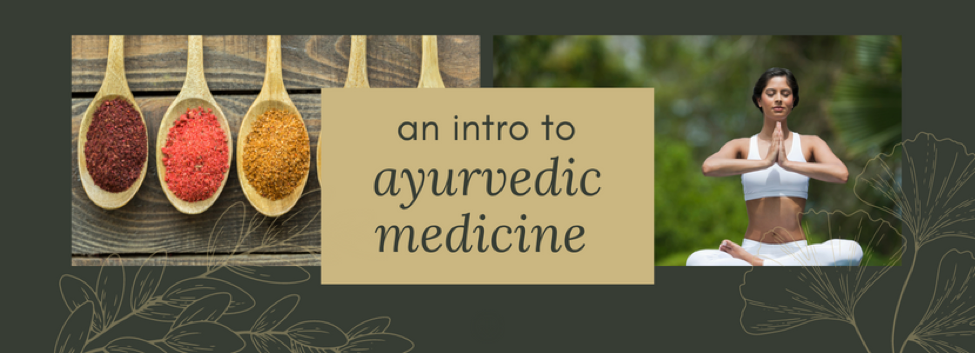
You may have come across it while researching diets, browsing the library, shopping in the herbal section of a health food store, or, you may never have heard of it all.
One of the oldest medical systems known to man, Ayurvedic (i-yur-vay-dik) medicine has origins in Southeast Asia (now known as India) where it is still one of the major forms of healthcare there.
In the 1970s, Baba Hari Dass, an Indian yoga master and monk, became an early advocator for Ayurvedic medicine in the United States. More recently (possibly due to the COVID-19 pandemic and many Americans’ search for holistic healthcare and prevention), it is gaining in popularity here.
What is Ayurvedic medicine?
Much like that of traditional Chinese medicine (TCM), Ayurvedic focuses on healthcare prevention as well as treating the root cause of an issue by maintaining and restoring balance and harmony.
In Ayurvedic medicine, every individual has his/her/their own pakruti, or constitution, that derives from three doshas: vata, pitta, and kapha. Doshas are based on how the five elements of life: space, air, fire, water, and earth manifest in a person’s physical and mental state.
An individual is said to have a primary dosha as well as secondary and can even have a mix of all three. Doshas can be influenced by environment, stress, and even weather.
Because prana (energy) shows up differently in each dosha, balancing it accordingly with customized lifestyle choices and therapies can help stimulate and/or reduce out-of-balance energy.
What are the doshas?
Vata
Vata is space and air:
thin spontaneous mobile, always moving
lanky creative inspirational
sensitive to cold anxiety-prone fast-thinker
dry hair and skin energetic excitable
irregular bowels/constipated nervous light sleeper
Pitta
Pitta is fire and water:
medium/athletic build intelligent inflamed
hot/sensitive to warm weather good memory angry
normal bowels and metabolism competitive sweaty
Slightly oily confident aggressive
intense appetite leader ambitious
Kapha
Kapha is water and earth:
larger build nurturing lethargic
heavy gentle calm
cold empathetic patient
oily grounded overweight/obese
deep sleeper slow moving swelling
Based on which dosha is present, lifestyle choices such as diet, exercise, and stress-management techniques are tailored to balance energy.
For example, herbs that are warming (such as cinnamon, cardamon, and turmeric) are recommended for vata dosha and can be enjoyed in hot tea.
Those with a pitta dosha may benefit from less spicy foods as to not stir up heat in the body and kapha can benefit from relaxing, yet enduring exercise such as walking to stimulate energy.
Both preventative care (such as lifestyle choices) and therapeutic options (to address a certain issue) are based on these doshas.
Dr. Graves is versed on Ayurvedic medicine and uses it in his practice, particularly when it comes to herbs. For more information, please call us at (303) 688-6698 or click here to schedule a free 15 minute phone consultation with him to discuss more in-depth.
The CNMA office provides naturopathic care, acupuncture, testing, massage, and holistic counseling to those in Castle Rock, Castle Pines, Highlands Ranch, Lone Tree, Centennial, Parker, Larkspur, Monument, Colorado Springs, and the greater Denver metro area. For those outside of these areas, virtual appointments are available.
REFERENCES:
https://en.wikipedia.org/wiki/Ayurveda
https://en.wikipedia.org/wiki/Baba_Hari_Dass
https://www.hopkinsmedicine.org/health/wellness-and-prevention/ayurveda


Leave a Reply